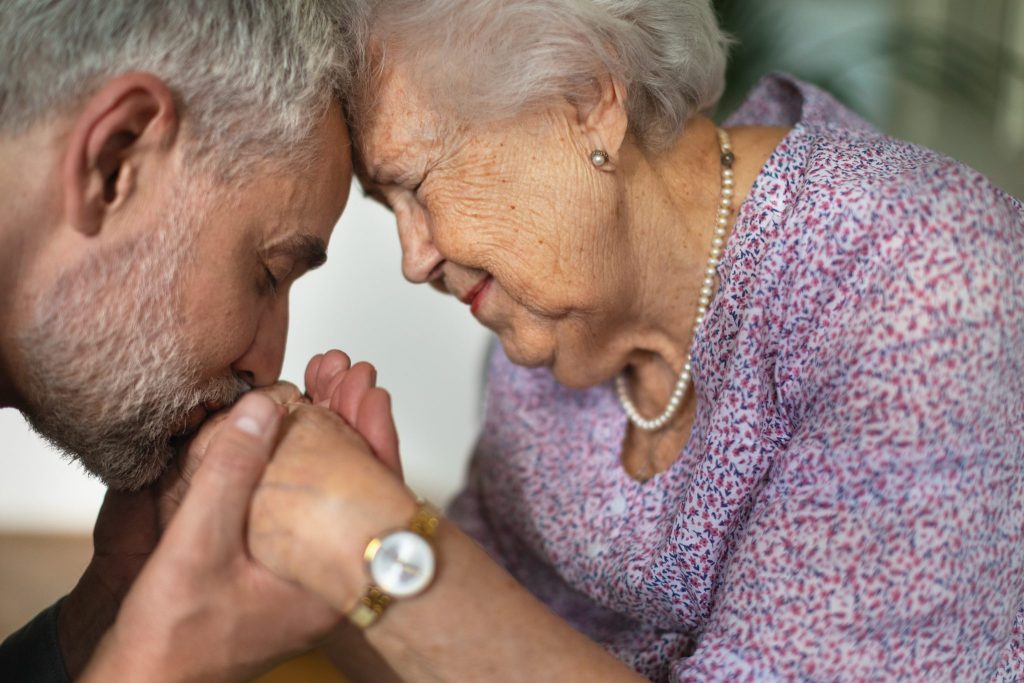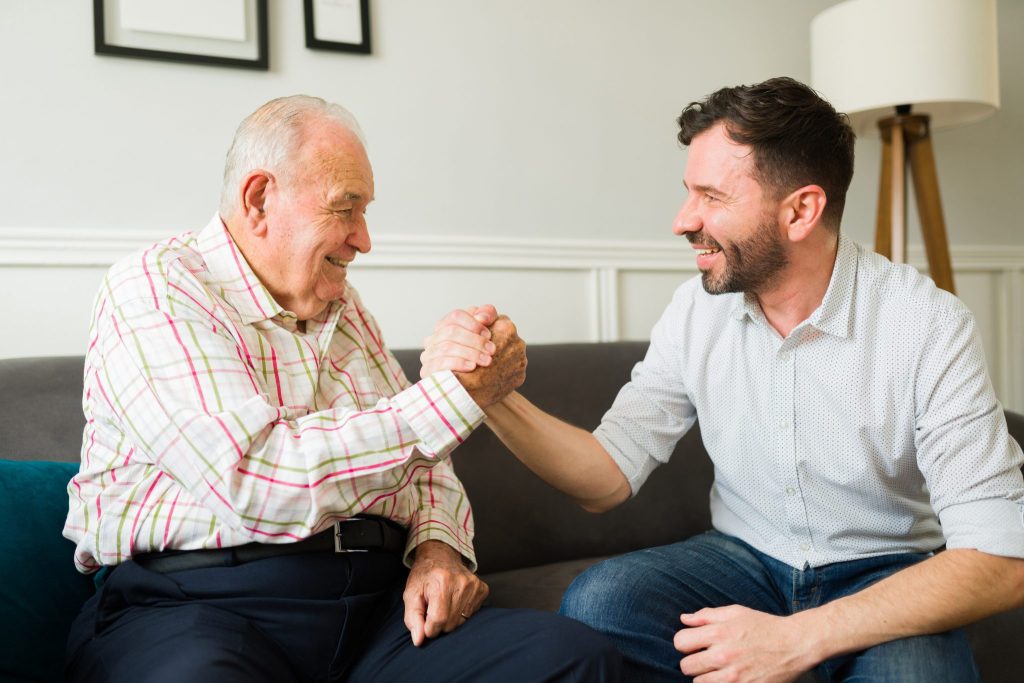As our loved ones age, they may require extra care and assistance to maintain their quality of life. For many adult children or partners, becoming the primary caregiver for an ageing parent can be a rewarding and fulfilling experience. But the responsibility of caregiving can also take a toll, leading to a condition known as “carers’ fatigue.” Carers’ fatigue can have a significant impact on caregivers’ lives, but there are strategies you can employ to prevent or minimise it.
There are also support services available for seniors in Australia who need at-home care and the carers who care for them. Let’s take a look.

What is carers’ fatigue?
Carers’ fatigue, also known as caregiver burnout, is a state of physical, emotional, and mental exhaustion that results from the demanding responsibilities of caregiving over time. When adult children or partners take on the role of caring for their ageing loved one, they often find themselves juggling various tasks, including administering medication, assisting with daily activities, managing appointments, and addressing emotional needs. Over time, these responsibilities can become overwhelming, leading to a decline in the caregiver’s overall wellbeing.
How can carers’ fatigue affect my life and how can I avoid it?
Carers’ fatigue can have far-reaching effects on both the caregiver’s life and the quality of care they provide. Some common symptoms of carers’ fatigue include:
- Physical exhaustion: Caregivers may experience chronic fatigue, sleep disturbances, headaches, and other physical symptoms due to the constant demands of caregiving.
- Emotional stress: Feelings of sadness, anxiety, guilt, and frustration are common among caregivers, particularly when they see their loved ones struggling with health issues.
- Social isolation: Caregivers often find themselves with limited time for social interactions, leading to feelings of loneliness and isolation, and it can also place stress on their existing relationships as they’re called to prioritise the needs of the person they’re caring for over those of their partner or children.
- Decreased work performance: Juggling caregiving responsibilities with work can lead to reduced productivity and potential career challenges.
- Health decline: Carers may neglect their own health, skipping medical appointments and not attending to their own needs, which can result in potential challenges with their own health.
- Physical injury: Repeated attempts to carry or help lift a loved one can result in back or other injuries, especially if the home is not built or adjusted with railings or mobility support devices.

How to prevent carers’ fatigue
- Seek support: Don’t hesitate to ask for help from family, friends, or professional Short-Term Caregivers. Sharing the caregiving responsibilities can provide much-needed relief.
- Take regular breaks: Schedule regular breaks for yourself, even if it’s just a short walk or time to engage in a hobby. Taking care of your own wellbeing is vital.
- Join support groups: Connecting with other caregivers in support groups can be helpful. It provides a safe space to share experiences, seek advice, and gain emotional support.
- Prioritise self-care**: Remember that you are important too! Prioritise self-care by getting enough sleep, eating well, and engaging in activities that bring you joy.
- Practise relaxation techniques such as meditation or breathing exercises to help keep your stress levels in check. You can use free apps such as Insight Timer or Smiling Mind if you would like some guidance or support.
- Stay informed: Educate yourself about your loved one’s condition, available resources, and caregiving techniques to build your confidence and reduce stress.
- Seek counselling: a professional counsellor can help you to process feelings and manage stress levels. You may be able to get a mental health plan through Medicare via your GP to help subsidise the cost of a counsellor for up to 10 sessions a year. Visit Beyond Blue or Lifeline (call 13 11 14) for online or telephone counselling.
Download and print a PDF version of this list to keep on the fridge or somewhere handy for reference.
What support is available for seniors in Australia
In Australia, seniors have access to various support services that aim to enhance their quality of life while ageing at home. Some key support options include:
- Home care packages: These government-subsidised packages, available through My Aged Care, provide a range of services, including personal care, household help, and nursing support, tailored to the individual’s needs.
- Commonwealth Home Support Programme (CHSP): This program offers entry-level support services to help seniors remain independent and connected within their communities.
- Aged Care Assessment Team (ACAT): ACAT assesses an individual’s care needs and determines their eligibility for government-funded aged care services.
- Senior-specific social programs: Various organisations offer social activities, outings, and companionship services to combat social isolation among seniors.
What support is available for carers?
Recognising the importance of carers’ wellbeing, several support services are available to assist them in their caregiving journey:
- Carer Gateway: The Australian Government’s Carer Gateway provides information, support, and resources to carers, including counselling, financial advice, and respite services.
- Short-Term Care: Carers can access Short-Term Care services, which offer temporary relief by arranging for someone else to take over caregiving duties for a short period. Respite services can also provide a helpful trial of Aged Care Residences before making a permanent move. You can learn more about the Short-Term Care TriCare offers here.
- Online support and resources: Numerous online platforms and forums offer valuable information, advice, and a sense of community for caregivers.
- Counselling and therapy: Seeking professional counselling or therapy can help carers process their emotions and develop coping strategies.
How TriCare helps support carers with the transition to Aged Care
Our qualified team offers personalised attention and support around the clock for each individual, ensuring every resident feels happy and comfortable within our residences.
All TriCare Aged Care Residences provide safe and home-like environments for seniors who need clinical and social care, assistance with personal tasks and medication management. They are designed to help residents feel at home, enjoy their hobbies and be as independent as possible.
We care for seniors as if they were our own family, so you can enjoy peace of mind knowing your mum, dad, husband, wife, or relative will receive 24/7 genuine care in our homely residences.
Each Aged Care residence has a dedicated team of Registered Nurses, qualified Carers, Lifestyle Coordinators and a professional Chef expertly managed by our Facility and Clinical Managers. Our teams have the experience to support from low care to complex needs and from Short-Term Care to Dementia Care and Memory Support and Palliative Care.
We offer continuity of care, with residents able to continue seeing their preferred GP or allied service providers if they choose, and our residents also have access to physiotherapy, podiatry, diversional, occupational speech therapies, GP, and other services like dietary, beauty, and wellness to feel and look their best.
Wherever you are in your carer journey, it’s important to take care of your health and wellbeing while caring for your loved one. Remember to seek support, prioritise self-care, and access available resources, so you can better manage your responsibilities while also providing care to your loved one.
And if you’d like help with Short-Term Care or a transition to Residential Aged Care, our staff are here to help and to answer any questions you may have. Get in touch on 1300 TRICARE (874 2273) or book a tour by clicking below.




